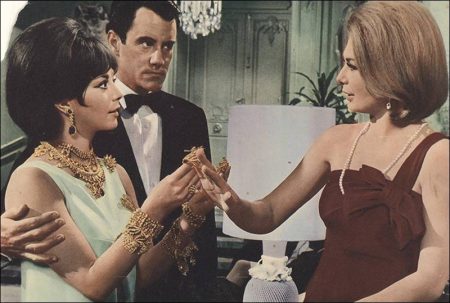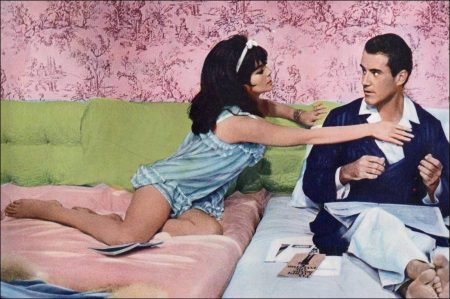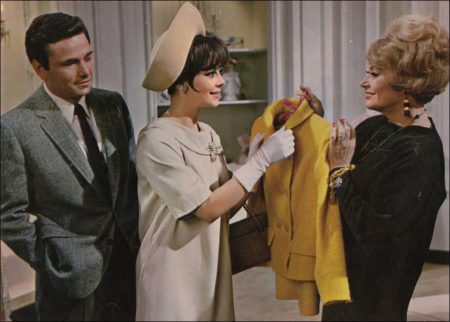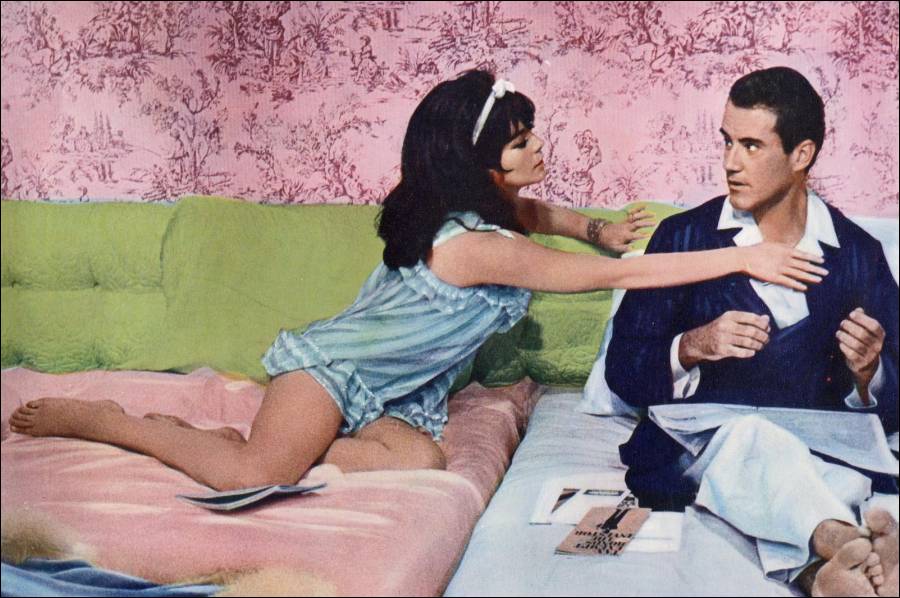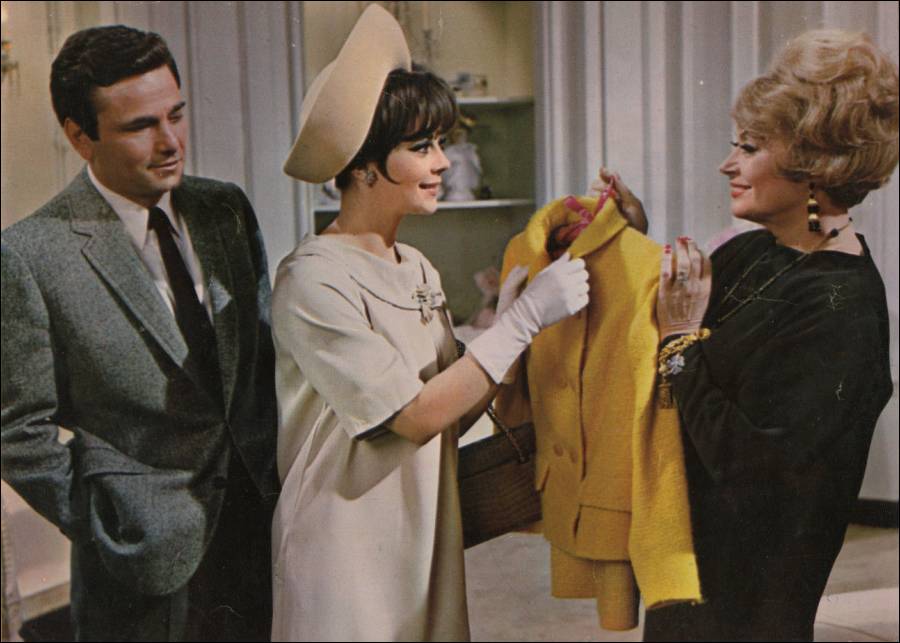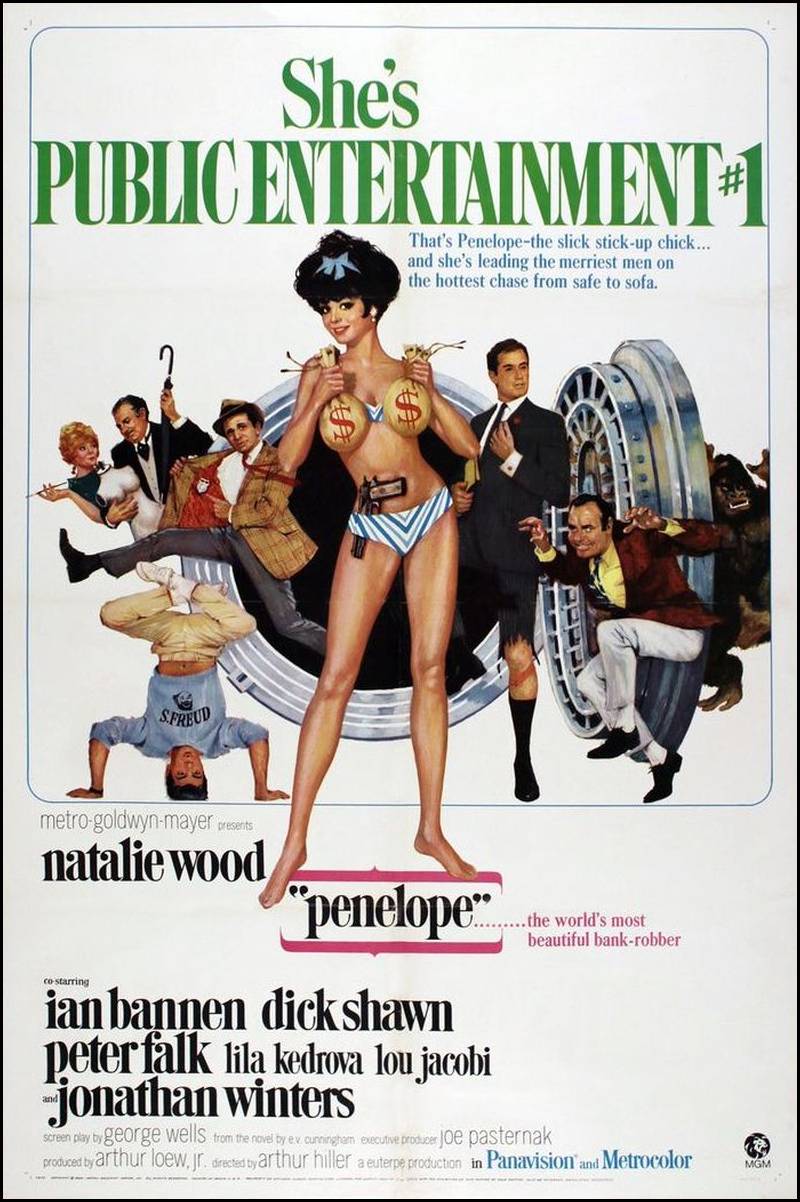Taglines: She’s Public Entertainment No. 1.
Penelope movie storyline. Donning a disguise, Penelope Elcott has just successfully robbed the bank where her husband James Elcott works as its president. This robbery follows a string of jewelry thefts she has committed on targeted victims. Penelope is trying to figure out why she is doing these things with the help of her long time and exasperated therapist, Dr. Gregory Mannix, who himself is in a mental quandary over his love for her and now what to do with this information of her crimes.
Penelope is not remorseful, nor does she need or even use the money accrued from her crimes. She doesn’t believe she’s a kleptomaniac as her thefts are not a compulsion. And she even flaunts with the idea of others knowing that she committed these crimes, people such as Horatio Bixbee, the police lieutenant in charge of investigating the bank robbery, and even James himself. But when Penelope finally comes to the realization of why she is doing these things and what she should now do, the obvious may become too obvious. And James may come to his own realizations too late.
Penelope is a 1966 comedy and caper film directed by Arthur Hiller, and starring Natalie Wood, Ian Bannen, Dick Shawn, Peter Falk, Lila Kedrova, Lou Jacobi, Jonathan Winters, Norma Crane, Arlene Golonka, Amzie Strickland, Carl Ballantine and Iggie Wolfington. A novelization of the screenplay was written by Howard Melvin Fast writing under the pseudonym E.V. Cunningham.
About the Story
Penelope Elcott (Natalie Wood) is the wife of wealthy banker James Elcott (Ian Bannen). Penelope decides to disguise herself as an old woman and rob her husband’s bank. While the police, including Lieutenant Horatio Bixbee (Peter Falk), rush to get to the bank, Penelope escapes in a red wig and yellow suit. She donates some of the stolen money to a Salvation Army worker and donates the suit to a second-hand thrift shop. Con artists Sabada (Lila Kedrova) and Ducky (Lou Jacobi) immediately recognize the suit as an original designer outfit from Paris, and purchase it for a mere $7.
Penelope visits her psychiatrist Gregory (Dick Shawn) and tells him all about her criminal activities. She says it began in college when a professor (Jonathan Winters) lured her into his laboratory and attempted to rape her, but she escaped, leaving her dress ripped off in the process. During the chase, she stole the watch fob of the professor. She next stole on her wedding day. When she caught her maid of honor Mildred Halliday (Norma Crane) kissing James, she swiped Mildred’s earrings and necklace. Gregory suggests she is stealing to attract attention from her distant husband.
A young woman, Honeysuckle Rose, is accused of being the thief. Gregory wants to return the stolen money to the bank, but panics when he hears police cars arriving. Penelope confesses and tries to clear the innocent Honeysuckle, but Horatio the cop and husband James do not believe her. Ducky and Sabada pay a visit, trying to blackmail her, but Penelope foils their blackmail attempt.
Penelope hosts a dinner party, having stolen from all the invited guests. She tries to return the stolen items, but all claim that they never have seen them before. Penelope, confused and frightened, runs away. She again robs James’ bank, but unlike the previous time, she is crying. James begs Horatio to find her. Penelope goes to Horatio with the stolen money, but the cop knows James would not press charges against his own wife.
Penelope (1966)
Directed by: Arthur Hiller
Starring: Natalie Wood, Ian Bannen, Dick Shawn, Peter Falk, Lila Kedrova, Lou Jacobi, Jonathan Winters, Norma Crane, Arlene Golonka, Amzie Strickland, Carl Ballantine, Iggie Wolfington
Screenplay by: George Wells
Production Design by:
Cinematography by: Harry Stradling
Film Editing by: Rita Roland
Costume Design by: Edith Head
Set Decoration by: F. Keogh Gleason, Henry Grace
Art Direction by: E. Preston Ames, George W. Davis
Music by: John Williams
MPAA Rating: None.
Distributed by: Metro-Goldwyn-Mayer
Release Date: November 10, 1966
Views: 204
